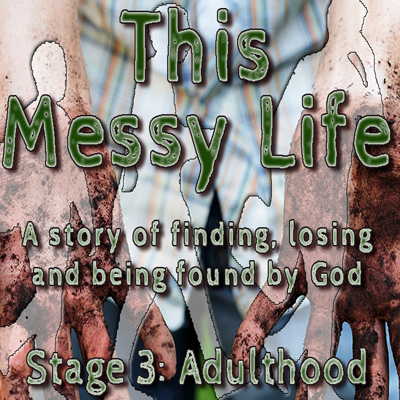THIS MESSY LIFE: BECOMING AN ADULT - PART 2
WHEN ALL SEEMS LOST
Sunday, November 10, 2019
Hosea 11:1-9, Mark 10:3-14
How can I give you up, Ephraim?
How can I hand you over, Israel?
How can I make you like Admah?
How can I treat you like Zeboiim?
My heart winces within me;
my compassion grows warm and tender.Hosea 11:8
Can I be honest?
I have a love/hate relationship with the prophets in scripture.
On one hand I love that they cut straight the heart. They don’t mix words. They tell it like it is and they declare God’s truth without concern for what anybody else thinks of them. Their courage and faithfulness is the stuff of legend.
This is all fine and good, so long as they are just shouting down those idolatrous people in ancient Israel. Those people knew better. How many miracles did God do for their ancestors in Egypt? How many times did God bail them out of a tight spot in battle? How could they forget the one who brought them out of slavery and made them into a great nation at the center of the world, a city on a hill that would shine the light of God’s glory as far as the eye could see and live as a blessing to all the nations? To these people, the harsh words of the prophets seem perfectly reasonable.
Like the older brother watching the young prodigal come home, we want dad to really lay into him. “Give him what he deserves for abandoning you and our family and squandering all of your gifts for his own selfish pleasure.”
Only dad doesn’t respond the way we might want him to. This is where the prophets become difficult. Sometimes those harsh words are directed at me, or at us. Sometimes we, who think we have been so good staying faithful to God and living in his household all this time, are really the ones who need a wake up call. The prophets remind us how much we have taken for granted and how much we have missed the point of what God has called us to do and who God has called us to be for the sake of others.
Then we come to Hosea. Of all the prophets Hosea is arguably one of the most gut-wrenching and emotional prophets of the bunch. He stops at nothing to pull our heart strings until we can’t help but weep not only for the people of Israel, but for ourselves as we see how far God will go to bring us back home, even when we have “played the whore” as Hosea’s wife does more than once.
In the beginning of Hosea we cannot grasp the extent of God’s grace modeled by the prophet as he literally buys his wife back from slave auction after her own unfaithfulness put her there in the first place. By the time we get to chapter 11, the image shifts from a broken and painful marriage to a parent who is crushed by his or her child’s outright and continual rejection.
If this scene were played out on the silver screen, there would not be a dry eye in the house. But Hosea isn’t simply trying to make us cry so he can win an Oscar. He’s reminding us who we are and who God is and he is helping us understand why the prophet’s words to Israel and to us seem so harsh.
The prophet’s anger is not the anger of wrath or vengeance, but the anger, the frustration, and the desperation of the broken and agonizing heart of a mother or father overflowing with love for their wayward son or daughter.
This is the cry of our heavenly Father / Mother:
“How can I give you up?”
How can I make you understand the depth of my compassion and love?
What will it take for you to come home?





